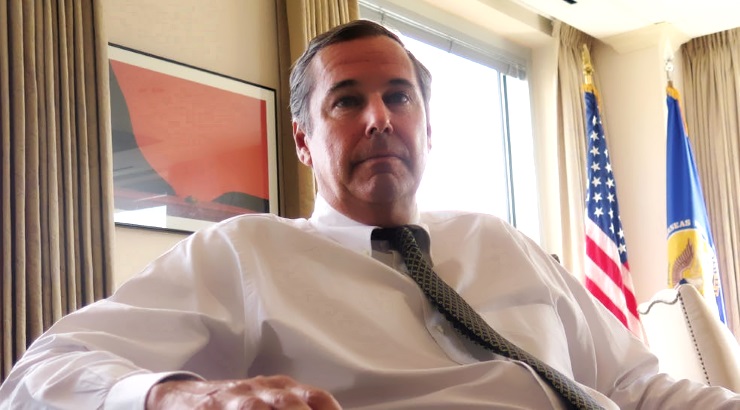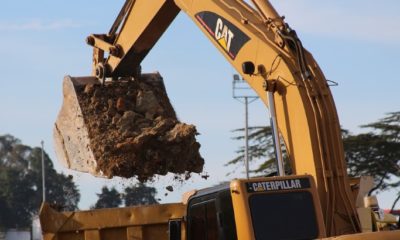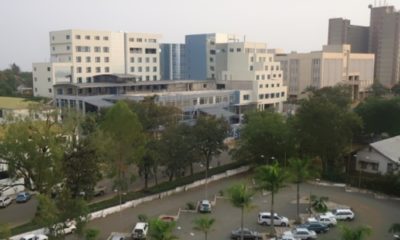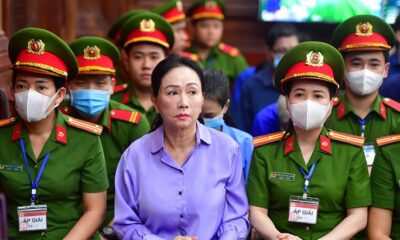Project News
U.S. Takes On China in Race for Kenya Infrastructure Deals
Top Washington official tours Nairobi to inspect U.S. funded projects.

The U.S. has stepped up its hunt for large-scale infrastructure deals in Kenya, in a move that seeks to challenge China’s near monopoly on big-ticket undertakings such as highways, railways, and hydro-power dams in the country.
Just last month, a heavy delegation from America led by Ray Washburne, the CEO of Overseas Private Investment Corporation — one of American development finance institutes — was in Nairobi to explore investment opportunities and to tour U.S. funded projects.
Mr Washburne, whose visit came shortly after the close of a bilateral conference in Nairobi that was organised by the US Chamber of Commerce, brought along a big message: America is eager to invest in Kenya and to “provide value for money” in the local projects.
“The American private sector has the ability to play a huge role in this growth by bringing critical investment, value, and American business practices,” Mr Washburne said in Nairobi on July 24, adding that Opic was eager to support U.S. companies to undertake projects in the country.
He singled out San Francisco-based engineering giant Bechtel International Inc. as one American company that has a strong commitment to value for money.
Bechtel last year signed a contract with the Kenya National Highways Authority (KeNHA) for construction of the proposed Nairobi-Mombasa Expressway at a cost of Sh300 billion.
READ: US firm wins deal to build kenya’s first high-speed highway
According to the KeNHA director general Peter Mundinia, the signing of the contract paved the way for mobilisation of financing from export credit agencies in the United States.
“Bechtel has been selected to build the first high-speed expressway in Kenya. The new 473-kilometre route will vastly improve the connectivity, efficiency, and safety of the road between Nairobi and the country’s main sea port of Mombasa,” Mr Mundinia said in a press statement in August last year.
The highway, which is designed for consistent speeds of 120 kilometres per hour, will have four lanes with provision for future increase to six lanes and 19 interchanges.
It is expected that agencies such as the U.S. Export-Import and Opic will finance the project. Indeed, Mr Washburne, who met with Bechtel last month, emphasised the agency’s “ready support” for the Nairobi-Mombasa Expressway.
The Kenyan government and Bechtel are, however, yet to agree on the funding model for the project.
Transport and Infrastructure Cabinet Secretary James Macharia recently said the project will be funded by private investors who will then recover their costs and margins by charging toll fees.
On the other hand, Bechtel is against the adoption of the Public Private Partnership (PPP) model on the argument that it would be too expensive – costing Kenya Sh540 billion in the next 25 years.
The matter is still being discussed.
On June 28, deals worth Sh10 billion were signed in Nairobi at a conference that was attended by a 60-member American delegation led by U.S. Under-Secretary for Trade Gilbert Kaplan.
Some of the key deals signed on that day include a Sh4.5 billion contract between Rendeavour and Unity Homes for the construction of 1,200 low-cost homes at Tatu City in Ruiru, and a Sh2 billion deal between Kenya and American firm Medtronic for establishment of a dialysis centre in Nairobi.
A Sh1 billion credit line to Victoria Commercial Bank from the World Business Capital, a global small and medium enterprise (SME) financier, was signed.
The American delegation included government officials and executives from major U.S. firms in the construction, chemicals, infrastructure, energy, transportation, finance, logistics, and healthcare sectors.
U.S. ambassador to Kenya Robert Godec said there is a huge potential for Kenyan and American companies to build on each other’s strengths and markets, and to create shared successes.
“Together, we will build greater prosperity for both Kenyans and Americans,” Mr Godec said.












